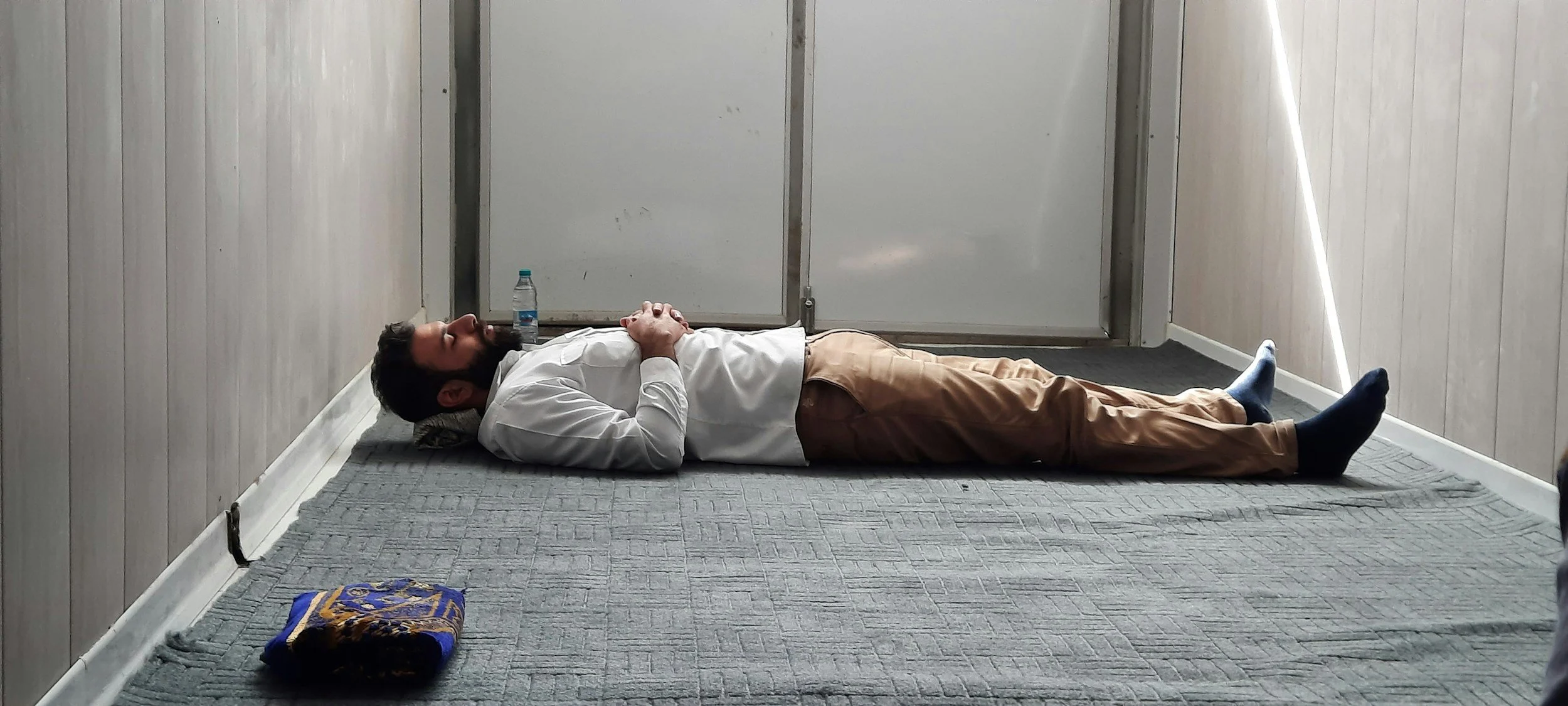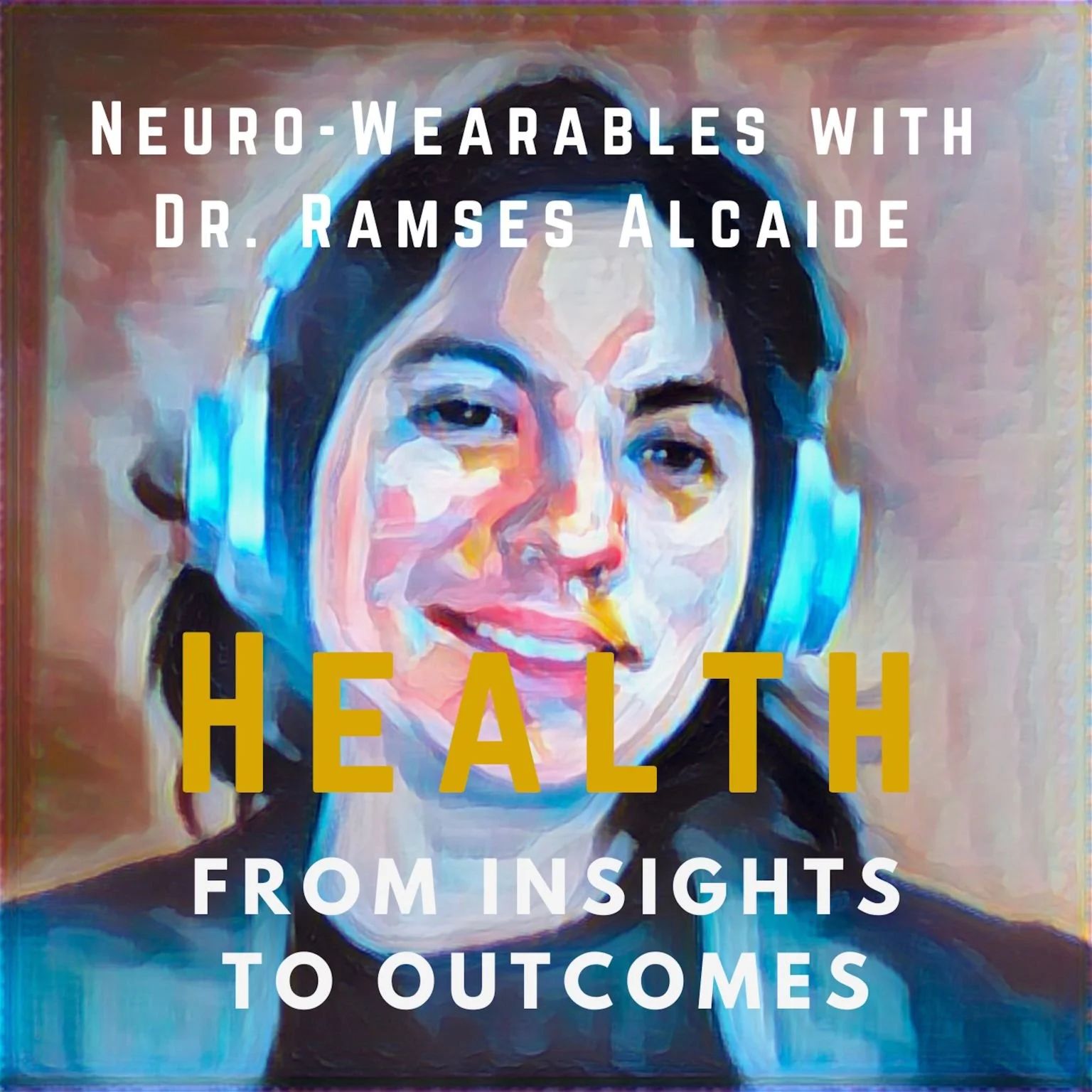Focus on Physicians:
Insights, Ideas, and Strategies
HALT: A Self-Coaching Stress Management Tool for Physicians
As a physician coach specializing in burnout and professional transitions, I've seen firsthand how the current state of healthcare can push even the most resilient doctors to their limits. To get you back on track, the simple acronym "HALT" – Hungry, Angry, Lonely, Tired – can be an important tool for self-awareness and self-care.
An earlier version of this article appeared on this website in January, 2024
As a retired cardiologist and a physician coach, I've seen firsthand how the current state of healthcare can push even the most resilient doctors to their limits. On some days, it might feel like one more disrespectful message, incomplete handoff, or chaotic clinic day could push you over the edge.
In these tough moments, HALT can help. It’s a quick and powerful prompt that helps you to check in with yourself, pause, recalibrate, and respond with intention.
HALT stands for Hungry, Angry, Lonely, Tired. Originally developed by psychiatrist and addiction specialist Dr. David Streem, HALT was designed to help people recognize the triggers that might lead to a relapse. But for physicians, the acronym serves as an intuitive tool that can remind you to mindfully take a pause and acknowledge what you need, instead of lashing out with a reaction that you might later regret.
Why HALT Matters for Physicians
Burnout is recognized as a natural human response to a dysfunctional workplace. Key features include emotional exhaustion, depersonalization, and a sense of reduced personal accomplishment. Most physicians experience one or more of these aspects of the syndrome. Burnout is not your fault. Nor is it a mental health diagnosis. But when left unchecked, burnout can fuel emotional outbursts and reactive behavior that may jeopardize your professional standing, strain your personal relationships, and leave you feeling even more overwhelmed.
Whether or not you’re experiencing full-blown burnout, it’s likely that you encounter frustration on the regular. How you navigate these challenges can have ripple effects. When you’re running on empty—emotionally or physically—you're more likely to lash out, shut down, or say something you’ll regret when you’re triggered. These reactions don’t just affect patient care and team dynamics; they can also have serious consequences for your career.
That’s where HALT comes in. Ask yourself if you feel:
❓Hungry
❓Angry
❓Lonely
❓Tired
If the answer to any of the above is yes, take a breath, slow your roll, and give yourself a moment of self-compassion and grace.
Here's how HALT works:
Hungry
If you’re like many physicians, hunger may be your default mode. Although it shouldn’t be the norm, it’s painfully common for physicians to skip meals or eat irregularly due to hectic and overbooked schedules.
Junk food from the snack machine or physician’s lounge might fill you up, but it can often make you feel even worse. One easy strategy to counter the “hangries” is to take a few minutes each evening to pack something nourishing for the next day. Nuts, a piece of fruit, or a protein bar can go a long way.
But hunger isn't just about food. It's often about other unmet needs, whether emotional, physical, or intellectual.
Take action on all kinds of hunger by building in a 10–15-minute break to reset your mind and body once or twice daily whenever possible. When you fill up the tank, stabilize your blood sugar and slow down your sympathetic nervous system, you’ll likely find it easier to maintain a steady mood and energy level.
In the long run, the few minutes you carve out to care for yourself will pay off in more respectful relationships, improved productivity, and better health.
Angry
Anger is a natural emotion, but how you handle it in the workplace is crucial. Unchecked anger can lead to conflicts with colleagues, write-ups from staff, and unpleasant meetings with administrators. When it carries over to the bedside or operating room, it may impact the doctor-patient relationship, undermine teamwork, and even affect patient care.
Often the first warning sign of anger is your physical reaction. Become aware of this emotion, and notice how it feels in your body. When you find yourself getting angry, take a moment to pause and step back. Give yourself time to process and reflect, so that you can move forward with intention instead of reaction.
Deep breathing, a short walk, or even bluntly but respectfully discussing your feelings with a trusted colleague can open up a fresh perspective and prevent words and actions that you’ll regret later.
Lonely
Even if you’re surrounded by people all day, the medical profession can be isolating. The weight of responsibility, the fear of making mistakes, a constant pressure to perform, and the need for confidentiality can all leave physicians feeling emotionally disconnected.
When you’re feeling lonely, your stress response may be more intense—reactivity, irritability, or emotional withdrawal can all be signs that you’re running low on connection.
Acknowledging loneliness is the first step toward countering it. Even brief yet meaningful interactions with friends, family, or trusted colleagues can help restore a sense of belonging. Get outside of the boundaries of the clinic or hospital, even if it feels a little uncomfortable at first. Finding a hobby or activity that gets you out of the “doctor” mindset can offer much-needed connection and perspective.
Tired
When you’re tired, everything just feels harder. It’s no surprise that fatigue is a common issue among physicians. Long hours, high stress, and fractured sleep while on call mean that more than 40 percent of doctors surveyed report that their work schedule simply doesn’t allow for adequate sleep.
Chronic tiredness can impair your judgment and your empathy. Although it can be hard to feel compassion for your staff and others though the fog of fatigue, noticing what’s driving your irritation can soften your reaction to stress.
While you may not always be able to control your schedule, small changes can still make a meaningful difference. Prioritize consistent sleep when possible, even if it means saying no to non-essential obligations. When you’re sleep deprived, use short breaks during the day, even if it’s just five to ten minutes, to stretch, breathe deeply, or take a quick walk. Even modest improvements in rest and recovery can help restore your clarity and replenish your emotional reserves.
How to Use HALT in Your Daily Practice
✅ Check In: Before reacting, take a breath and run through your HALT checklist. This simple pause can reset your frame of reference.
✅ Be Proactive: Make time for healthy meals, use brief but effective stress-relief practices like mindfulness, get regular exercise, cultivate a life outside of work, and do your best to get restful sleep.
✅ Seek Support: If you're struggling with anger, loneliness, or fatigue, professional support can be a lifeline. Therapy, coaching, or peer support groups may offer the perspective and tools you need, depending on your circumstances.
✅ Communicate with Colleagues: Foster an environment where it's safe to respectfully express what you’re feeling. This kind of openness can build stronger, more supportive team dynamics.
Simply recognizing your internal state is often enough to shift your response. It’s also a powerful reminder that caring for yourself is neither selfish nor optional.
When you meet your needs with intention and care, you’ll create the capacity to show up more fully for your patients, your team, and yourself.
If you’ve enjoyed this article and would like to stay in the loop for more insights on creating a sustainable, fulfilling, and happy life as a physician, sign up for my newsletter or reach out on my website. I’d love to hear from you.
And if you’d like to schedule a complimentary introductory meeting with me, click the link below.
Thriving Amidst Chaos: Prioritizing Health, Self-Care, and Mindfulness
When your days are busy and your evenings are full, making time for your own well-being can sometimes feel like another thing to check off your endless to-do list. If you’re like many physicians, self-care often falls by the wayside.
The truth is that you need to recharge and refresh in order to be the best version of yourself. And, as important as it is to care for your health and happiness, it’s not just about you. When you care for yourself, you’ll be better equipped to care for those who depend on you.
In this article, we’ll explore why self-care matters, including the impact of self-care on stress management, and I’ll give you some simple steps that will help you to thrive amidst the daily storm of clinical practice.
An earlier version of this article appeared on this website in October 2023
When your days are busy and your evenings are full, making time for your own well-being can sometimes feel like just another thing to check off your endless to-do list. If you’re like many physicians, self-care often falls by the wayside.
The truth is that you need to recharge and refresh in order to be the best version of yourself. And, as important as it is to care for your own health and happiness, it’s not just about you. When you care for yourself, you’ll be better equipped to care for those who depend on you.
In this article, we’ll explore why self-care matters, including the impact of self-care on stress management. Next, I’ll give you some simple steps that will help you to put these ideas into motion. By caring for yourself, you’ll be empowered to thrive amidst the daily storm of medical practice.
The Impact of Stress on Burnout
It’s common to think of stress as harmful and something to be avoided. But stress can affect your health positively as well as negatively.
Positive stress (or eustress) happens when you face a challenge or a deadline that you know you are capable of meeting. It might be a stretch, but you know it’s possible. And importantly, there is a reward waiting on the other side.
While positive stress can propel you towards your goals, negative stress (sometimes called distress) can lead to frustration and burnout. Negative stressors are those forms of stress over which you have no control. A boss (or spouse) who is never happy, a job for which you are never rewarded or thanked, and escalating demands at work without adequate time off to rest and reset are all forms of negative stress.
Constant and unrelenting stress can lead to burnout. The World Health Organization defines burnout as an “occupational phenomenon.” Burnout is characterized by
Exhaustion and loss of motivation
Cynicism and negativity
Inefficiency
Given the current state of healthcare, it’s no surprise that nearly half of physicians reported at least one manifestation of burnout in 2024.
It’s important to remember that burnout is not your fault. By definition, it is a symptom of a dysfunctional system or workplace. Perfectionists, people-pleasers, and so-called workaholics seem to be more susceptible. Not surprisingly, these personality types are common for physicians. But developing some tools to help you get through tough times can lessen the impact and improve your overall happiness and wellbeing.
Self Care and its Benefits
Self-care is not just about pampering yourself. It's about taking care of your mental, emotional, and physical well-being.
Committing to self-care can enhance your focus, improve relationships, lower stress, and mitigate burnout. Acknowledging the mind-body connection is often the first step towards effective self- care.
Nutritional Psychiatry and Stress Management
The new field of Nutritional Psychiatry focuses on the growing body of research that strongly connects what you eat to how you feel. Without a doubt, mental health is complex and multifaceted. Diet is only one part of the big picture.
But when you’re famished and pressed for time, the quickest options can undermine you, sabotaging your best intentions and sapping your energy.
As it turns out, those ultra-processed foods that often pass for nutrition in the doctor’s lounge or office snack machine can raise your risk of anxiety, sleep disturbance, depression, food addiction, alcohol use disorder, and increased inflammation. Artificial sweeteners in particular have been linked to a greater risk for depression.
Instead, consider switching in simple elements of the Mediterranean diet like fruits, nuts, whole grains, olive oil and fish. You probably know that the Mediterranean diet supports heart health and may reduce the risk for certain cancers. But this diet is also linked to improved symptoms of depression and better mental health and well-being. There’s also emerging evidence that a Mediterranean diet can improve perceptual performance.
It might take a little planning, but going Mediterranean doesn’t have to be complicated. Simply packing a nourishing lunch or advocating for healthier options at work can make a difference.
Exercise and Health
You already know that regular exercise will lower your risk for heart disease, cancer, bone disease, and dementia, among other dreaded conditions.
But research has also shown that exercise can reduce anxiety, improve sleep, and improve immune function. It doesn’t take a lot of exercise to reap the benefits. A brisk 15 minute walk a few days a week is a great way to get started.
Mindfulness and Self-Care
"Mindfulness is the awareness that arises when we nonjudgmentally pay attention in the present moment.” These are the words of Jon Kabat-Zinn, PhD., Professor of Medicine Emeritus at the University of Massachusetts Medical School, and the godfather of mindfulness in healthcare.
Put even more simply, mindfulness is undistracted attention.
Practicing mindfulness has a wealth of benefits, some of which you might not anticipate, including
Less stress and anxiety
Greater parasympathetic tone
If it all sounds a little woo, know that mindfulness doesn’t have to be about practicing yoga or meditating. You don’t need a special cushion or a meditation app, although those can be nice. Instead, it’s about being undistracted, nonreactive, and fully present in the moment.
Getting started with mindfulness isn’t complicated. Simply set aside 3-10 minutes of quiet time each day to observe the present moment. Notice your thoughts and let them go, returning to the present when your mind wanders.
It is this practice of continually returning to the present moment that develops the “mindfulness muscle.”
When you practice mindfulness, you may find that your presence, and hence communication, with patients and colleagues becomes easier and more engaged.
Create an Action Plan
Creating an action plan will help you to set realistic goals and track your progress. Write out the steps that you need to take to commit to your self-care. And develop a plan that is realistic and actionable.
Consider enlisting a partner or friend with whom you can share accountability to help you to stay committed. Something as simple as a daily reminder on your phone may also keep you on track.
The ripple effect of taking your own self-care to heart will show up in your energy level, creativity, and relationships. You may notice a greater sense of self-compassion and equanimity. And in time, your path forward toward the goals that matter will become more clear.
If you’ve enjoyed this article and would like to stay in the loop for more insights on creating a sustainable, fulfilling, and happy life as a physician, sign up for my newsletter or reach out on my website. I’d love to hear from you.
And if you’d like to schedule a complimentary coaching discovery session, click the button below.
References
Adan, R. A. H. et al. (2019). Nutritional psychiatry: Towards improving mental health by what you eat. European neuropsychopharmacology : the journal of the European College of Neuropsychopharmacology, 29(12), 1321–1332.
American Medical Association & American Medical Association. (2024, July 2). Physician burnout rate drops below 50% for first time in 4 years. American Medical Association. https://www.ama-assn.org/practice-management/physician-health/physician-burnout-rate-drops-below-50-first-time-4-years
APA Dictionary of Psychology. (n.d.). https://dictionary.apa.org/eustress
Brulé, G., & Morgan, R. (2018). Editorial Working with stress: can we turn distress into eustress? ResearchGate. https://www.researchgate.net/publication/324531212_Editorial_Working_with_stress_can_we_turn_distress_into_eustress
Davidson, R. J. et al. (2003). Alterations in brain and immune function produced by mindfulness meditation. Psychosomatic medicine, 65(4), 564–570.
Ezzatvar Y, Ramírez-Vélez R, Izquierdo M, et al. (2022). Physical activity and risk of infection, severity and mortality of COVID-19: a systematic review and non-linear dose–response meta-analysis of data from 1 853 610 adults. British Journal of Sports Medicine 56:1188-1193.
Gilbert, D., & Waltz, J. (2010). Mindfulness and health behaviors. Mindfulness, 1(4), 227–234
Lane, M. M. et al. (2022). Ultra-Processed Food Consumption and Mental Health: A Systematic Review and Meta-Analysis of Observational Studies. Nutrients, 14(13), 2568.
Loucks, E. B.et al. (2015). Mindfulness and Cardiovascular Disease Risk: State of the Evidence, Plausible Mechanisms, and Theoretical Framework. Current cardiology reports, 17(12), 112.
Martinez-Gonzalez, M. et al. (2019). The Mediterranean Diet and Cardiovascular Health: A Critical Review. Circulation Research 124:779-787
Munoz, M.A. et al. (2009). Adherence to the Mediterranean diet is associated with better mental and physical health. British Journal of Nutrition. 101 (1821-1827),
Samuthpongtorn C et al. (2023). Consumption of Ultraprocessed Food and Risk of Depression. JAMA Netw Open. 2023;6(9):e2334770. doi:10.1001/jamanetworkopen.2023.34770
Shanafelt, Tait D. et al. (2022). Changes in Burnout and Satisfaction With Work-Life Integration in Physicians During the First 2 Years of the COVID-19 Pandemic. Mayo Clinic Proceedings, Volume 97, Issue 12, 2248 - 2258
Stubbs, B. et al. (2017). An examination of the anxiolytic effects of exercise for people with anxiety and stress-related disorders: A meta-analysis. Psychiatry research, 249, 102–108.
World Health Organization: WHO. “Burn-out an ‘Occupational Phenomenon’: International Classification of Diseases.” World Health Organization, 28 May 2019, www.who.int/news/item/28-05-2019-burn-out-an-occupational-phenomenon-international-classification-of-diseases.
Yin, W. et al. (2021). Mediterranean Diet and Depression: A Population-based Cohort Study. International Journal of Behavioral Nutrition and Physical Activity, 18(1). https://doi.org/10.1186/s12966-021-01227-3
Young, H. A. et al. (2022). Mediterranean diet, interoception and mental health: Is it time to look beyond the ‘Gut-brain axis’? Physiology & Behavior, Volume 257.




































